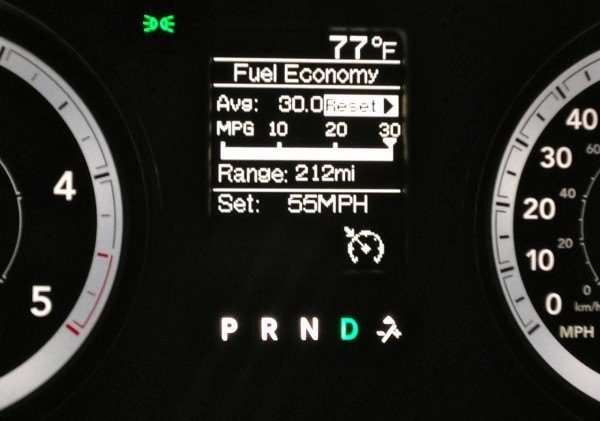Editorial: Look To The Future For Further Ford Fuel Savings
With its unprecedented shift to an aluminum body for the next Ford F-150, the Blue Oval appeared to be pivoting towards a serious improvement in fuel economy. But with the release of the official EPA figures, the newest truck appears to offer only modest improvements.
Ford’s own release stresses a comparison between the new truck and the 2008 model equipped with the now obsolete 4.6L V8 engine. One could make the argument that Ford is attempting to show how a returning customer might see significant gains from his old, V8 truck versus a brand new Ecoboost V6 rig. But Ford also didn’t compare the figures to the outgoing 2014 model, which is the typical convention.
That may be because the gains, on paper, are modest at best. Of the two carry-over engines, the 3.5L Ecoboost now returns 17/24/20 mpg (city/highway/combined), versus 16/22/18 mpg for the 2014 model. The 5.0L now gets 15/22/18 mpg versus 15/21/17 mpg. And the Ecoboost engines are notorious for doing well on standard EPA tests, while delivering lower results in real world driving.
If Ford’s past product rollouts are any indication, we will see incremental improvements over the next few years. A 10-speed automatic, due within the next 1-2 years, is sure to add further improvements in fuel economy. A new V6 diesel engine, set to compete with the Ram 1500 and its 28 mpg highway rating, is also said to be in the works.
More by Derek Kreindler


































Comments
Join the conversation
I am coming to the conclusion that there is very little difference between Ford and GM.
I'm still confused about why everyone is hung up on fuel economy being the driving force behind the weight savings. Even Ford's PR videos state that the weight savings has been transferred to payload capacity increases. I have yet to read anything that FORD promotes that says that this new truck will have substantial MPG increases over the previous generation. I think most of the B&B jumped to a huge conclusion in thinking that Ford was aiming solely for improved fuel efficiency. I personally believe that the slight increase was incidental.
The overall market for trucks will go down over a period of time as they get more expensive and more complex to meet the new federal guidelines. Manufacturers will continue to make money from their trucks but the percentage of the profit will go down as will the percentage of the market. It would not surprise me if the overall sales of F series trucks decrease by 100k over the next 5 years, but GM and Ram will decrease as well as they have to spend more money developing and producing trucks that meet the federal guidelines. I don't think you can just single Ford out on this without looking at the entire truck segment and the potential effect of the new regulations on the cost and demand for trucks in the future. This would be an interesting topic for Cain to write about.
I just read Motor Trend's comparo of the new F-150 against Silverado and RAM. What a lot of the so-called B&B here don't realize is that the AL F-150 is still a heavy beast --4900 pounds according to MT's numbers. Repeat, 4900 pounds. It's not a Fiesta. It's TWO Fiestas. So, coupled with the fact that it has the aerodynamics of a brick, why aren't you celebrating the fuel economy this kind of monster gets? Also, I suspect that it's slightly (or very) overengineered, Ford no doubt wanting to quiet the skeptics about the durability of the aluminum body. This is Gen 1; the engineers will find more fat to squeeze out of the organism as they learn more.